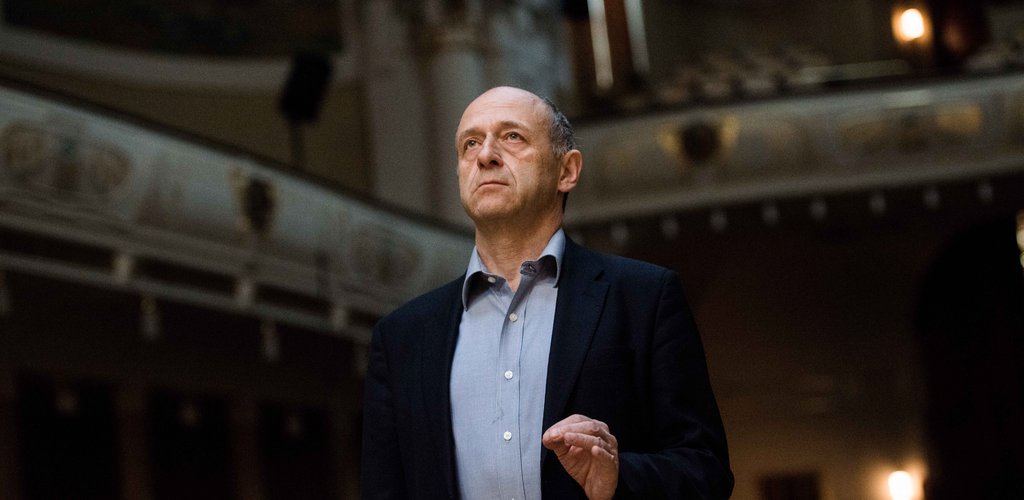“We are not afraid of innovation; creativity flourishes within the Festival Orchestra. The musicians have unearthed many new chamber music pieces, they study baroque music, contemporary music, folk music, singing – the list could go on for some time,” elaborated the conductor.
As Iván Fischer put it, he doesn’t feel as if he has just passed a point of no return; he is swamped with work, preparing for so many concerts and an opera production, while his new string quartet also premiered in Amsterdam this week. “So the significance of the birthday is overshadowed by more important dates,” he added. “It would be good to do an appraisal, to look back at the past, but to do so would need more time.” His book about the Festival Orchestra’s history is semi-finished. “I would also like to finish that book,” he said. “I hope it will come to pass.”
To the question of what drives him forward after his successes both with and without the BFO, what inspires him to struggle on, and whether there is something he still wants to achieve, he said that in this case the word ‘forward’ was not really appropriate.
“Nothing has ever driven me forward, least of all goals and results. I can never see further than the small, immediate goals before me. Make a piece sound good; ensure a beautiful moment of music reaches the depths of the listener’s soul; find the meeting point between music and theatre in opera; completing a piece. For this, you need to manipulate your tools. Actually, the founding and up-keep of the Festival Orchestra is just a tool to achieve the goal of making beautiful music. What is more, music is only a tool to reach the ultimate goal of bringing the good out of people,” he elaborated.
He reminisced about important teachers, Hans Swarowsky and Nikolaus Harnoncourt, but there were also unofficial masters who taught him perhaps even more. “I believe Leonard Bernstein was the most important, especially because he was versatile. He was a composer, a conductor, an educator, a humanist, and a real, deep thinker. From him, I learned that music is not a competitive arena of single-minded people. I’ll never forget what he said: ‘I love music, but I love people even more’.”
To the question of whether, officially or otherwise, he has students to carry on his musical conception, he replied that he invites assistants to every production “who thus get immersed into the method and atmosphere of the way we work. After that, I encourage them to go on, look around, study elsewhere too. Everybody needs several teachers. I would not like to bring up clones.”
He also recounted how the list of composers he holds very close to his heart is a long one, not least because variety is essential. “After a week of Mahler it feels good to listen to some music by Bach, but switching to Messiaen afterwards is also refreshing. More and more I have become interested in the latest music, partly because I’m curious about what the future of music will hold.”
Asked whether the musical instrument a conductor plays (even possibly at a professional level) has any significance, and if it can influence a conductor’s mind-set, he said that yes, it can be decisive. “Pianists tend to think in multiple voices and harmonies, while violinists rather think in melodies, colours, expressions. I was a cellist first and foremost, but I also played the piano and the violin, I taught myself to play the horn a bit, and worked as a harpsichordist. I have just bought a set of bagpipes, and I merely need to learn how to play them. The more instruments I know something about, the easier it is to work with an orchestra.”
He also added that, as well as directing the BFO, he has always been employed abroad: in London, Lyon, Washington and now in Berlin. “This kind of duality is necessary, because I can utilise the experience I gained in one place when I go to the other. Not everything, only those that stand a chance of working. It works well this way.”
As a composer, he also has great plans for the coming years. “Deadlines are flashing up on my calendar,” he said. “I have an orchestral suite to finish by next spring, then I need to complete a one-act opera that will be paired with The Red Heifer to expand the piece into a full-length work.”
Iván Fischer also told us that he loves to play games in his free time; he is currently proud of having made the top 3 at a Dutch chess tournament. And he doesn’t only have time for intellectual sports. “Unfortunately I can’t play tennis right now because I hurt my knee a little while skiing,” he said. “I hope it will heal soon enough. I need to be active.”


